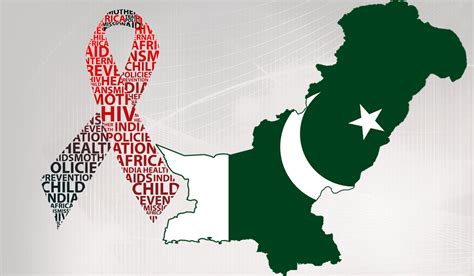During the last two years, the number of women affected by HIV/AIDS in Multan has increased rapidly. According to the Punjab AIDS Control Program, by January 2021, the number of patients with this disease in Multan was around 1,000, including 179 women.
By April 2023, the number of registered HIV/AIDS patients in the city had increased to more than 1,300, of which 411 were women.
In this way, the percentage of women among the registered patients of this disease increased from 18 to 31 percent in two years. These are patients who have undergone regular tests and are undergoing treatment at various hospitals or medical centers. Many people do not get tested due to socio-economic reasons or because the disease does not show obvious symptoms.
According to hospitals and non-governmental organizations involved in the diagnosis and treatment of HIV/AIDS, it is difficult to determine the final number of unregistered patients of the disease in Multan, but according to a conservative estimate, their number maybe three or four times more than the registered patients.
Twenty-two-year-old sex worker Saima (pseudonym) is married and lives in the suburbs of Multan. He has been with HIV for some time.
They say that they have neither brought this disease from their home nor have they been born with this disease. She believes that she contracted the disease from an unknown man in a sex worker’s den and now she has to live with him for the rest of her life.
They also say that they now require safe physical contact with their clients to protect others from the disease.
Twenty-six-year-old Shama (pseudonym) living in a suburb of Wahari is also a sex worker. She told that men visiting prostitution centers object to safe sex. They do not take preventive measures due to which the spread of HIV is accelerating.

Most of the women affected by this disease in the city are sex workers.
Asif Ilyas, executive director of Oath Organization, a non-governmental organization working on the eradication of HIV and registration of people suffering from this disease, says that his organization conducted tests on more than 400 sex workers and suspected patients of this disease in Multan in three months. Seven of these women were diagnosed with HIV. Thus, the results of 1.75 percent of the tests came positive.
Dr. Shakib Faiz Khan, surgeon of Nishtar Hospital Multan, says that unprotected sex is the main reason for the spread of this disease among women. They recommend that women and men should undergo regular tests, including HIV, to detect the virus among other diseases.
Dr. Shakib Faiz Khan says that one of the important reasons for this transfer is the unsafe method of blood transfusion. Reuse of medical equipment, syringes, and grooming tools used by an infected person can also lead to the transmission of HIV from one person to another.
Contaminated instruments used by dentists, dentists, and ear or nose piercers are also major causes of the spread of this virus.
Asif Ilyas says that in our country it is considered wrong to conduct a medical test of a girl and a boy before marriage. If one of them is HIV positive, he can easily transmit the disease to others.
An HIV/AIDS treatment unit has been set up at the Civil Hospital in Multan where many people receive free medicines every day. Free medicines are also provided by Nishtar Hospital. However, HIV patient Neelam (pseudonym) says that it is not easy to get treatment and take medicines in these centers.
Neelam, a mother of two, has been suffering from HIV for the past few years. She says treatment centers for patients like her are set up in government hospitals where everyone comes. If any of their loved ones, neighbors, or acquaintances see them registering there, taking medicines, or getting their tests done, the word spreads and thus many problems arise for these patients.
She said that if people come to know that someone is suffering from HIV/AIDS, it can also harm their children. Because family, neighborhood, and local people reduce or stop contact with such patients and it becomes difficult for them to send their children to school.
An official of the National AIDS Control Program says that several international organizations, including the government and the United Nations, are cooperating to provide free HIV diagnosis and medicines. However, awareness programs are needed to prevent the spread of this disease. Such programs should be extended to schools, colleges, universities, transporters, their staff, and sex workers.
